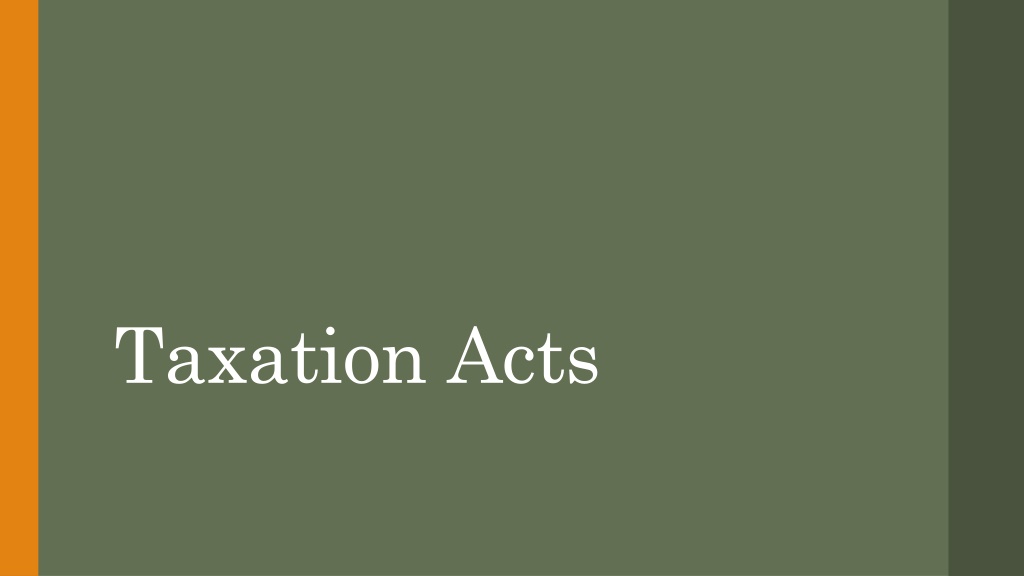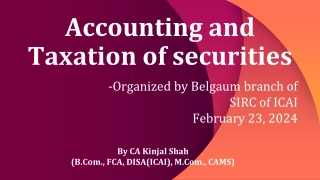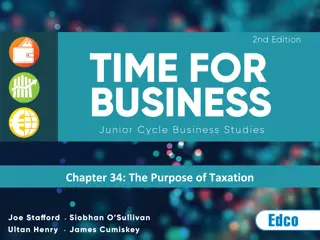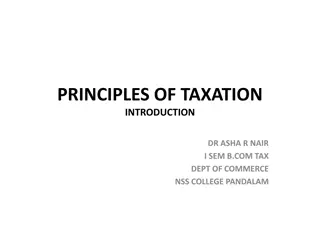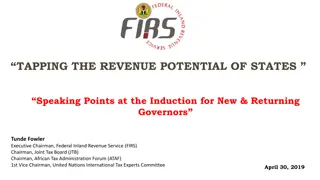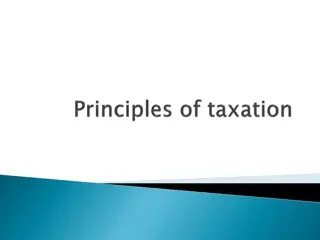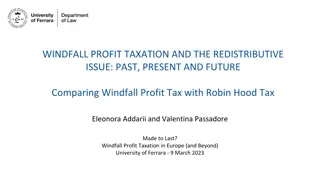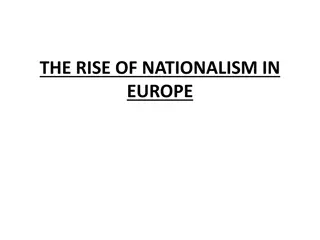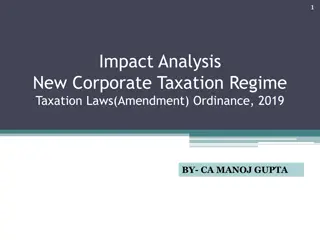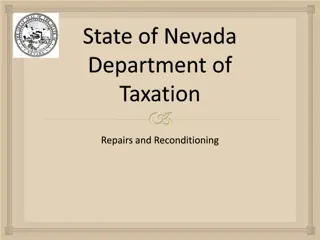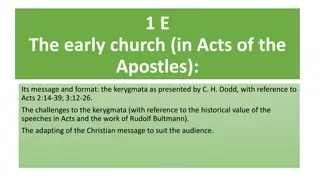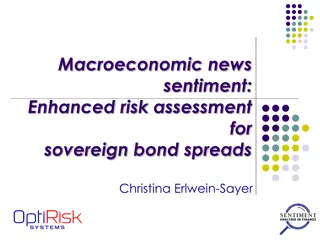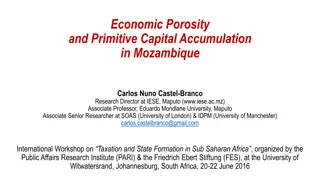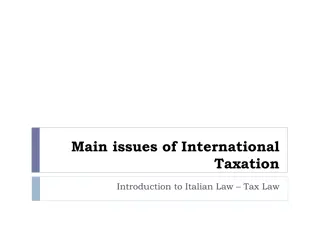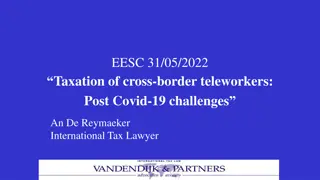Exploring Taxation Acts and Their Impact on Revolutionary Sentiments
The provided content delves into historical taxation acts, including their specifics and potential implications on the onset of the American Revolution. It also draws parallels to modern-day examples of product taxation, prompting reflection on the fairness and consequences of such levies. The discourse extends to a debate on British authority over the colonies and the role of liberty in taxation debates.
Download Presentation

Please find below an Image/Link to download the presentation.
The content on the website is provided AS IS for your information and personal use only. It may not be sold, licensed, or shared on other websites without obtaining consent from the author. Download presentation by click this link. If you encounter any issues during the download, it is possible that the publisher has removed the file from their server.
E N D
Presentation Transcript
Taxation Acts included: The Sugar Act (1764)- A tax on sugar and molasses imported into the colonies The Currency Act (1764)- Regulated paper money issued by American colonies The Stamp Act (1765)- A tax on all paper used for printed materials in the colonies The Townshend Acts (1767)- A tax on British goods (glass, tea, lead, paints, and paper) The Tea Act (1773)- Allowed for tea to be shipped by British companies duty-free to the colonies, thus sell at a discounted price
Discussion Do you believe the taxes presented were unjust enough to cause a violent reaction like the Revolution? Why?
Examples of taxes on products Today in Philadelphia there is a Soda tax since 2016 where for every soda there is a 1.5 cent tax per ounce of soda. This funds programs like subsidized pre-K and the public works program known as Rebuild. In Chicago, there is a plastic bag tax since 2017 where citizens of Chicago have to pay a 7 cents per bag tax on both paper and plastic grocery bags.
Discussion Continued With taxes today being similar to the Taxation Acts, does it change your opinion whether taxes are unjust enough to cause such a violent reaction? Why?
British Constitutional Debate (Ball-Toss Debate) Did the British government have the right to extend their authority into the colonies? In this issue of rights to tax a colony, should liberty be involved in this debate? Why?
